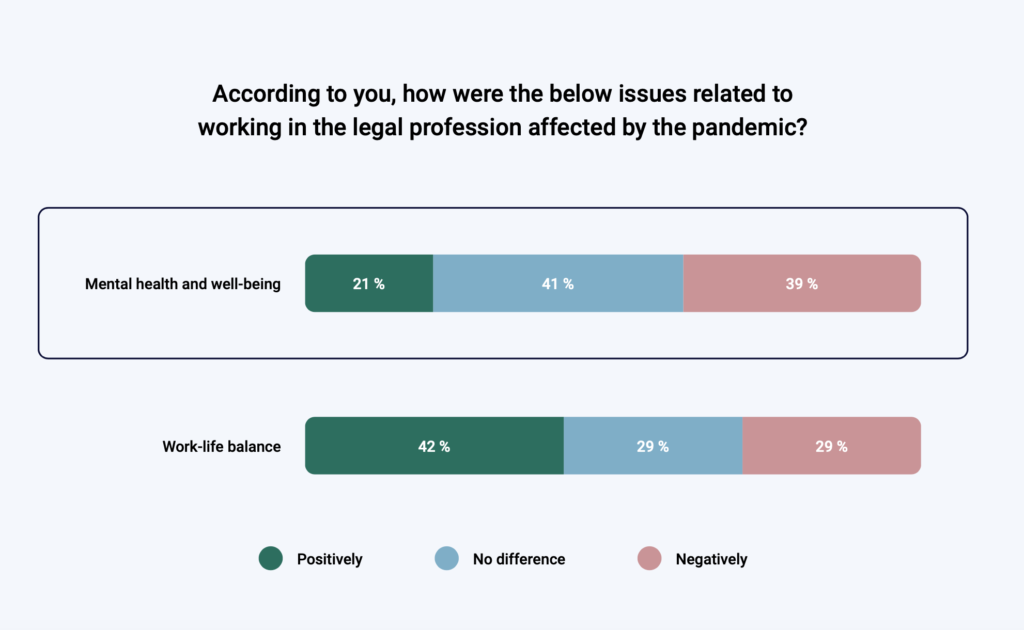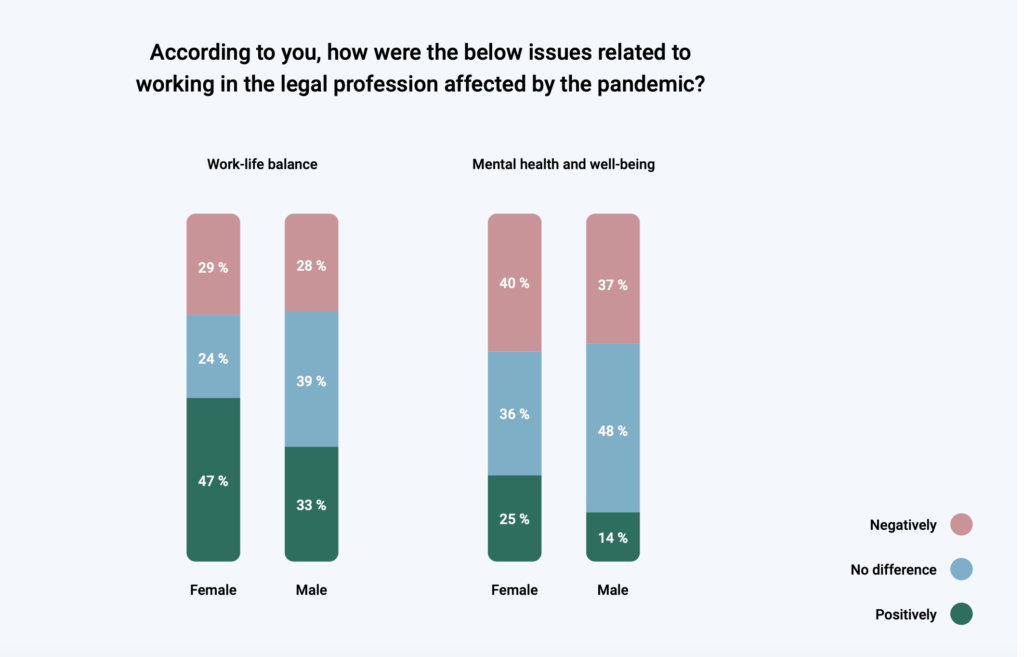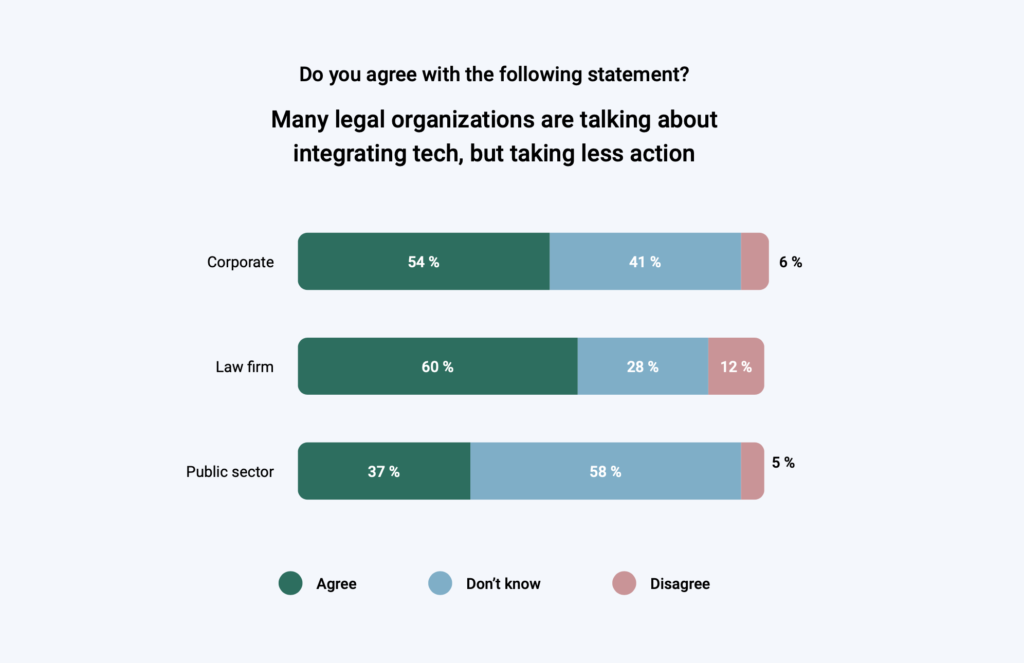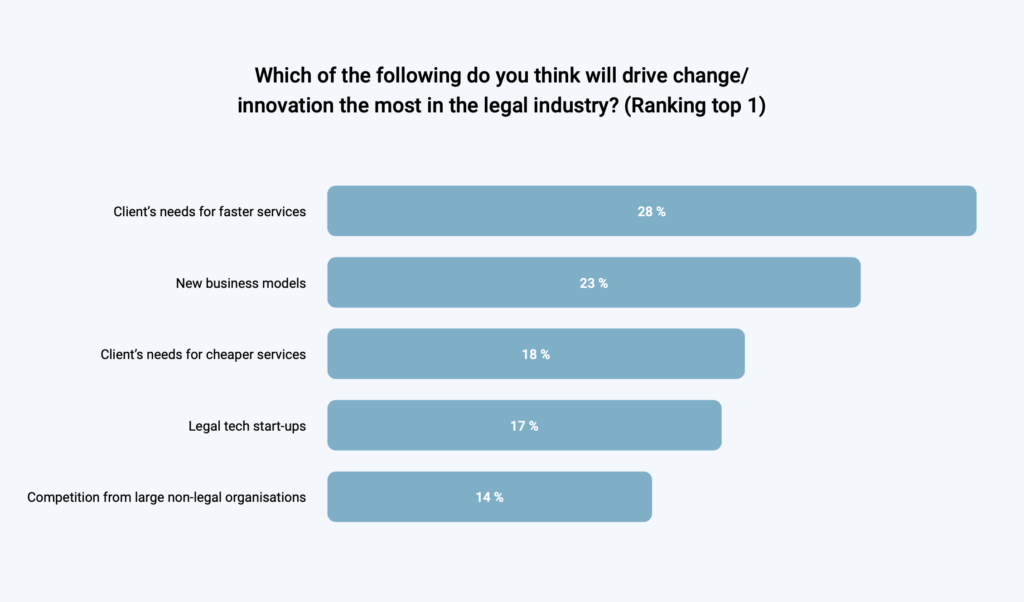
A survey of 3,379 people across the legal sector has found that the pandemic has created a paradoxical scenario of a better work-life balance, but simultaneously worse mental health.
The data, gathered by the Karnov Group, presents a complex picture for the legal and legal tech sectors, and the employers within it.

As you can see in the table above, work-life balance has improved for 42% of people, and only got worse for 29%, because of the pandemic and the impact of working from home (WFH).
But, the same group reported that mental health has been worse for 39%, and WFH has only made 21% experience better ‘mental health and well-being’.
This next table adds further detail.

For women in particular, work-life balance has improved, with 47% saying there was a positive change from things like WFH.
The negative mental health impacts for women and men were not far apart, at 40% and 37% respectively. While 25% of women noted mental health improved, while only 14% of men did, suggesting the positive impacts on well-being of WFH were felt more by women, at least in Scandinavia.
The key thing that stands out here is that much as the discourse around WFH is about a better lifestyle, this data shows that extended periods away from colleagues and the workplace could perhaps also result in higher levels of stress and anxiety. I.e. isolation from in-person office life can give you more time, but could affect you in other ways.
This makes the role of employers trying to decide what is best for their staff even harder, as the data seems to show that even though people clearly are getting positives out of WFH, an improvement in their mental health and sense of well-being isn’t necessarily correlated to this for everyone – and as far as the data shows, the reverse may be the case for a significant number of people in Scandinavia.
How far mental health is impacted negatively by social isolation is certainly beyond the remit of this site, but it’s a challenging area that companies and law firms will have to consider, especially as they evolve their flexible working policies as the pandemic slowly recedes.
—
The survey also looked at legal tech in Scandinavia, where the results were a true reflection of the market when compared to what this site’s founder has experienced on many visits to Sweden and Denmark over the years.

The data shows a general view that there is a lot of talk about legal tech there, but little substantive adoption of tools that really change things. 60% agreed this was the case for law firms, and only 12% disagreed – and they are probably the people at the firms that are doing something.

When it comes to what will actually drive change, the top view is that clients’ needs for faster services will be the key factor, with 28% thinking this.
Then it’s new business models, cheaper services, the legal tech startups themselves triggering change, and finally new entrants to the market.
However, a lot of legal tech adoption is not just about doing things faster. Speed is part of it, but is only one aspect of the overall efficiency gains picture. One would also have expected cost benefits to perhaps be higher up the list as this is integral to efficiency gains. And there is no mention of better use of lawyers’ time to do higher value and more meaningful work.
Overall, the reality is that there are several great legal tech pioneers in Scandinavia, some of which are going global now, and some law firms are moving forwards – but clearly it’s still relatively a small group that are really embracing change.
1 Trackback / Pingback
Comments are closed.